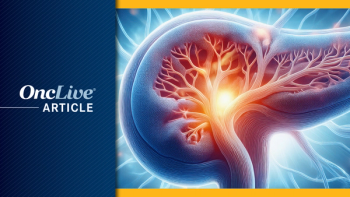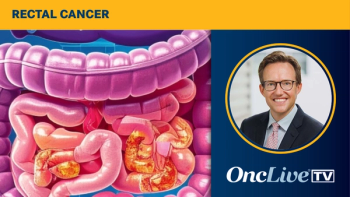
Dr. Noel on the Impact of SM-88 in Pancreatic Cancer
Marcus Noel, MD, discusses the data of SM-88 and how it will impact the treatment of patients with metastatic pancreatic cancer.
Marcus Noel, MD, assistant professor, Department of Medicine, Hematology/Oncology, University of Rochester Medical Center, discusses the data of SM-88 and how it will impact the treatment of patients with metastatic pancreatic cancer.
The premise of SM-88, which consists of a tyrosine derivative (D,L-alpha-metyrosine), an mTOR inhibitor (sirolimus), a CYP3a4 inducer (phenytoin), and an oxidative stress catalyst (methoxsalen), is to interfere with cancer metabolism while keeping toxicities down, Noel says. The results have shown that the regimen is generally well tolerated and fits into the third-line setting.
Results of the single-arm, 2-part, phase II Tyme-88-Panc study presented at the 2019 Gastrointestinal Cancers Symposium demonstrated that SM-88 has promising efficacy in patients with metastatic pancreatic cancer who have progressed on at least 1 prior line of therapy.
The part 1 data showed that, at a median follow-up of 4.3 months after treatment initiation, 67.8% of 28 evaluable patients were still alive as of December 31, 2018. Survival status is ongoing, and the primary endpoint is response rate determined by blind independent central review.



































